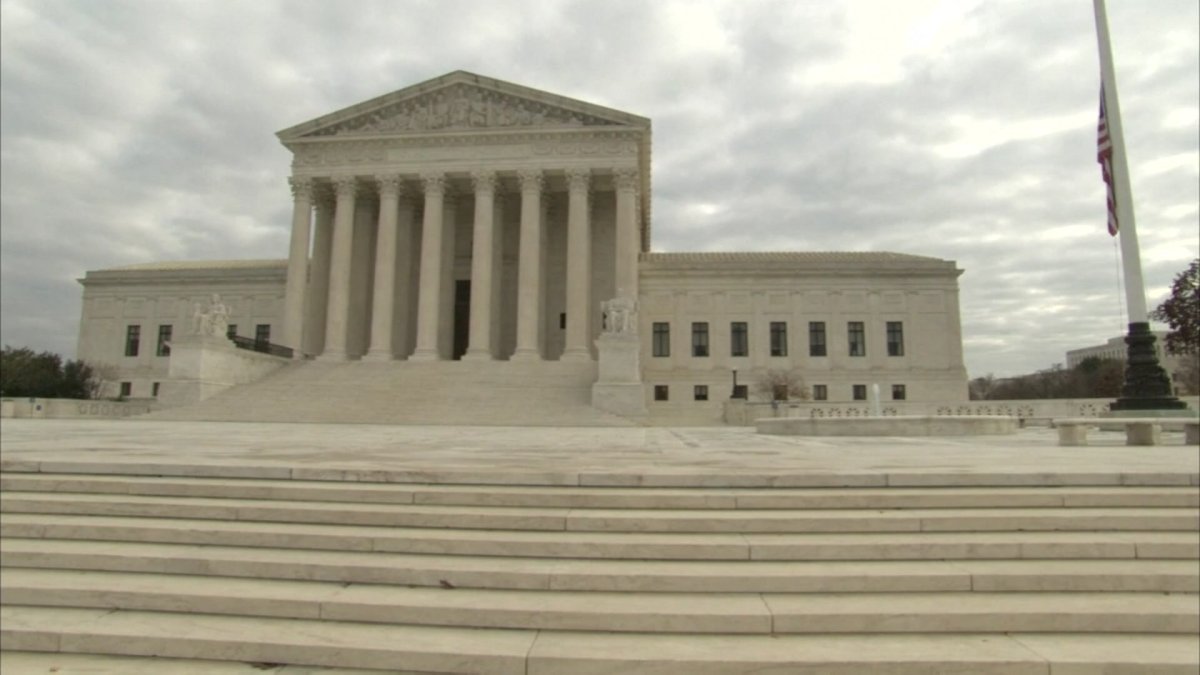
The U.S. Supreme Court handed down two decisions Thursday concerning President Joe Biden’s vaccine mandates.
New York City's health commissioner on Friday blasted the U.S. Supreme Court's ruling on the president's COVID-19 vaccine mandate as "misguided" and sought to make one point extremely clear: The city's private-sector rule is still in effect.
Dr. Dave Chokshi, who is keeping his role until March as part of Mayor Eric Adams' transition plan, tweeted that he was dismayed by Thursday's high court decision, which blocked Joe Biden's all-encompassing private-sector vaccine mandate but allowed a version of the rule applicable to most U.S. healthcare workers to stand.
"The health and safety of all Americans should be paramount, especially in the middle of a pandemic," Chokshi tweeted Friday. "In NYC, our vaccine requirements — including our private-sector mandate — remain in effect, and highlight how vital local public health efforts are."
New York City's private-sector vaccine mandate applies to roughly 184,000 businesses and has one critically different component compared with the one Biden's administration tried to introduce: There is no weekly test-out option.
Get Tri-state area news and weather forecasts to your inbox. Sign up for NBC New York newsletters.
Former Mayor Bill de Blasio announced his intent to implement the rule in early December, well before the worst of the omicron surge set upon the city but perhaps after healthcare officials and experts already had an idea of what was to come.
The mandate took effect on Dec. 27, and Adams made it clear on the eve of his mayoral swearing-in that he intended to keep it in place in his administration.
De Blasio had billed the measure as the "strictest" vaccine mandate in the nation as he announced his plans in early December, and vowed it would hold up in courts despite questions from reporters, critics and key stakeholders about its viability.
At the time, the then-mayor turned those questions over to his corporate counsel, Georgia Pestana, who said responsibility for enforcement and implementation of New York City's mandate was the key difference between de Blasio's rule versus Biden's and the prime reason it would stand up in the court system.
The city's mandate, as Pestana and de Blasio pointed out, came from the city health commissioner, who both said has a legal right to enact such orders when there is a significant threat, credible, perceived or otherwise, against public health. The threat of omicron would only become clearer over the course of that month.
In Biden's case, there were questions about the legal authority of the Occupational Safety and Health Administration (OSHA) to manage one mandate, and of the Centers for Medicare & Medicaid Services to manage another, Pestana said.
Thursday's Supreme Court decision comes amid an omicron surge unprecedented for the speed at which it dominated American COVID cases and for its ability to infect more fully vaccinated people more adeptly than any other variant has done.
In a comprehensive report New York City's health department report released late Thursday, officials said it took omicron only five weeks to dominate cases across the five boroughs once it was detected. It took delta 20 weeks to do the same.
More Coverage
Omicron got more New Yorkers sick and faster than any variant before it, and though most of the cases were milder than ones associated with delta, the sheer volume sent COVID hospitalizations soaring to levels unseen since April 2020.
Still, the city has been able to manage the increases, in part because people are being discharged faster than they were when delta was driving the case surge.
Multiple studies from multiple countries, both peer-reviewed and not, over the last few weeks have underscored that data point on hospitalizations.
The Supreme Court's ruling came amid a week that has seen New York City and state viral rates start to ebb for the first time since omicron's rapid emergence. Rolling positivity rates and case averages are declining for the first time in more than a month and have been doing so for several days, while increases in hospitalizations are starting to slow. Deaths, the final lagging indicator, are rising.
Chokshi, who will hand the health department reins over to Adams' appointed commissioner Dr. Ashwin Vasan on March 15, has stressed the utmost caution and continuance of core COVID protocols, like the vaccine mandate, amid this week's improvement even as Democratic Gov. Kathy Hochul entertained questions about whether she'd let her state mask-or-vaccination mandate lapse on Feb. 2.
Hochul made clear in one of her briefings this week when asked about that rule that she wasn't prepared to make any decision yet. She wanted to be sure the current trends not just hold but are sustainable. It may take a few more weeks to get clarity.
Nationally, the United States has broken daily case records several times already this month as hospitalizations have soared across the country. Biden sent military surge teams to six hard-hit states to shore up hospital resources as the nation battles a seemingly relentless pandemic that has already taken more than 842,000 American lives and continues to kill nearly 2,000 a day across the country.
The U.S. Supreme Court was divided along party lines in its decision on Thursday, with the conservative majority concluding the Biden administration overstepped its authority by tasking OSHA with mandate responsibility.
The three liberal justices argued the court was overreaching by substituting its judgment for that of health experts. OSHA had argued the far-reaching mandate could save an estimated 6,500 lives and prevent 250,000 hospitalizations over the next six months.
President Biden said he was “disappointed that the Supreme Court has chosen to block common-sense life-saving requirements for employees at large businesses that were grounded squarely in both science and the law.”
He called on businesses to institute their own vaccination requirements, noting that a third of Fortune 100 companies already have done so.